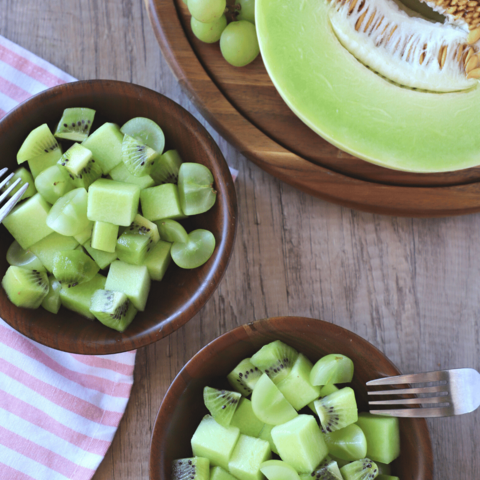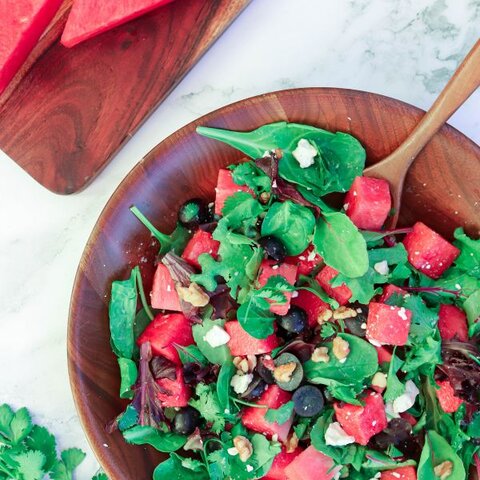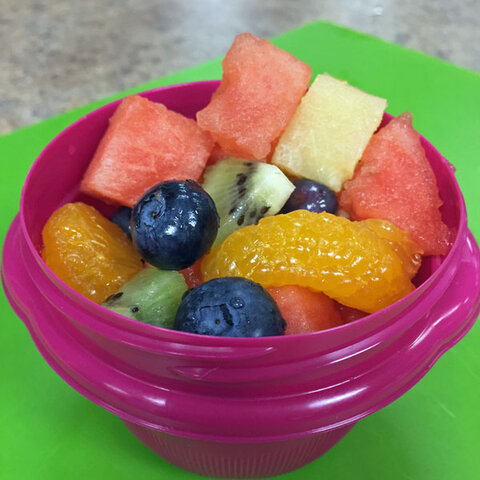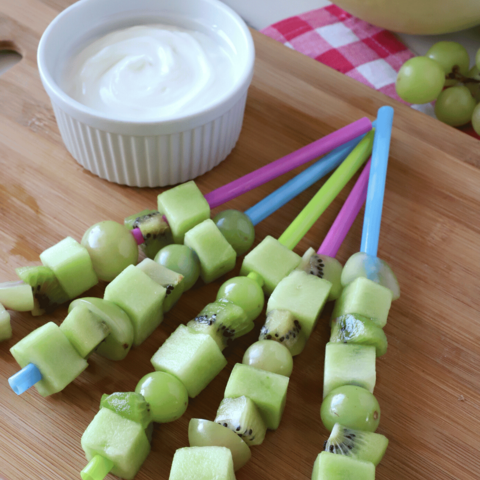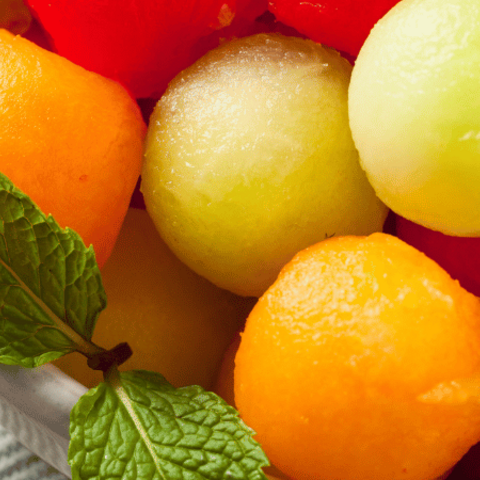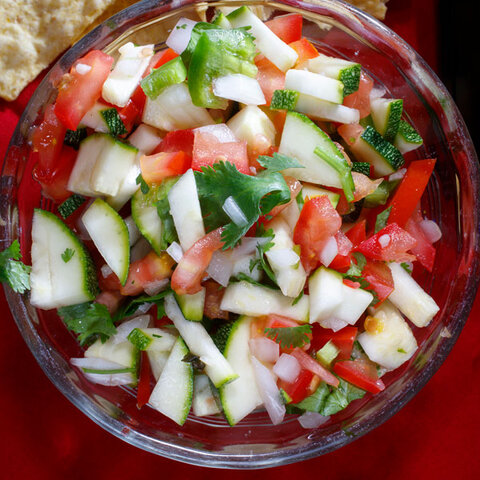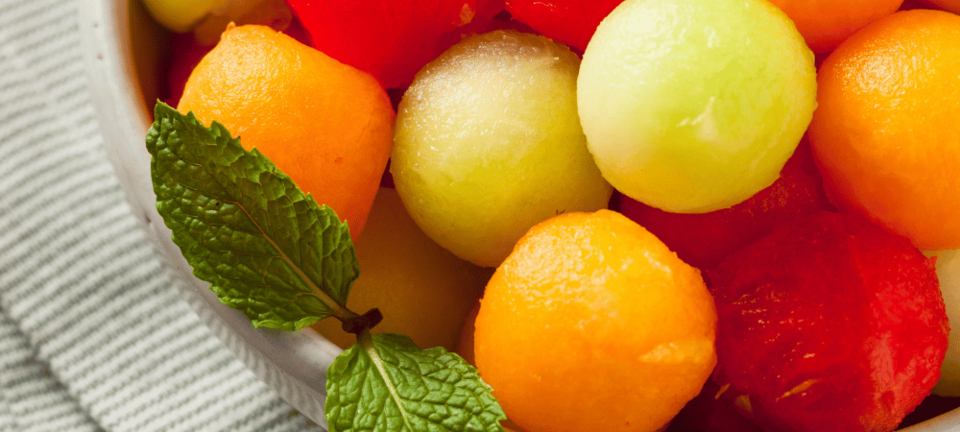
Melons come in many different varieties. The most common varieties of melons are watermelon, honeydew and cantaloupe.
Nutrition and Health Benefits of Melons
Honeydew, cantaloupe and watermelon are good sources of vitamin C, which helps heal wounds and cuts. Cantaloupe and watermelon are good sources of vitamin A, which promotes eye health and cell growth. Cantaloupe also has potassium which helps with muscle movements.
How to Select Melons
Choose melons that are symmetrical in shape and heavy for their size. They should be free from cracks, bruises and soft spots. Smell may not be a good indicator that the melon is ripe and sweet.
How to Store Melons
Store uncut melons on the counter for up to 10 days or in the refrigerator for up to three weeks. Cut melons should be covered in an air-tight container and refrigerated for up to five days.
How to Prepare Melons
- Add melons to a salad
- Melons can be added to a fruit soup
- Chop melon and add to a fresh salsa, serve with cooked chicken or chips
- Make watermelon lemonade
- Puree and add 100% fruit juice to make homemade ice pops
- Make a honeydew slushy
- Enjoy melons raw
- Make a drink with cantaloupe and orange juice
- Serve cubed or sliced with a fruit dip
Seasonal Availability of Melons in Nebraska
| Jan | Feb | Mar | Apr | May | Jun | Jul | Aug | Sep | Oct | Nov | Dec | |
|---|---|---|---|---|---|---|---|---|---|---|---|---|
| Harvest | x | x | x | x | ||||||||
| Market | x | x | x | x | x | x |
Featured Recipes
Source:
- Seasonal Produce Guide - Watermelon, SNAP-Ed Connection
- Seasonal Produce Guide - Honeydew Melon, SNAP-Ed Connection
- Seasonal Produce Guide - Cantaloupe, SNAP-Ed Connection
- Nebraska Harvest Schedule, Buy Fresh Buy Local Nebraska
